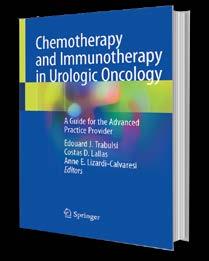
3 minute read
Provider Spotlight


Students participating in the Tender Grassroots program in Uganda founded by Doka.

Fatuma Doka, MSN, CRNP
By Lisette Hilton
Caring for children back home in Uganda
Fatuma Doka, MSN, CRNP, joined the Jefferson Department of Urology nearly 17 years ago as a nurse practitioner. Her journey to Jefferson and the tireless work she does today to help school children in her native Uganda is a story worth telling.
“Doka,” as everyone calls her, grew up Uganda and attended the British school system there to pursue nursing. After graduating as a registered nurse, Doka remained in Uganda, working at the Mulago National Referral Hospital, a country-wide referral center located in Uganda’s capital Kampala.
Uganda had become so dangerous that Doka decided to move her family to neighboring Kenya in 1984. There was great unrest in the landlocked African country in the early 1980s. Uganda was immersed in a civil war between President Milton Obote’s government and rebel groups including the National Resistance Army.
Doka worked at Kenya’s Aga Khan University Hospital until 1989. Her brother, who worked at the World Bank in Washington, DC, encouraged Doka to make a new home for her and her three children in the United States, where there was a nursing shortage.
The now grandmother of three would spend the next decade earning her master’s degree in nursing at Johns Hopkins University and working in a variety of health care settings in different states until she heard Jefferson was looking for a nurse practitioner in its Urology Department.
She has not looked back since joining Jefferson in 2004. While Doka did not have urology experience initially, she had extensive experience as a nurse practitioner collaborating with many disciplines.
“I think that is what I brought to the department. We care for very sick patients. They do not just have urology issues. It is more complex. You have to be able to collaborate, and that is something I enjoy,” she said.
Doka’s life would take a turn after she went to Uganda for a month last year. She visited her old primary school at lunchtime and saw it had not been upgraded in decades, the children did not have enough to eat and were hungry, there was little in the way of sanitation and classrooms were overcrowded.
“It was sad,” Doka said. “I could not let it go. I had to do something.”
Doka returned to life in the United States. but the children in Uganda remained on her mind. She started the nonprofit Tender Grassroots [tendergrassroots.org], recruited her grown children and nieces in the U.S. and Uganda to help. Tender Grassroots provides underserved communities across Uganda with resources, knowledge and skills that will empower them to end the cycle of poverty.
Suzanne Barron, MSN, CRNP, Doka’s partner on the inpatient urology service, said that Doka has expressed a desire to give something back to her home country. “It’s great that through her Tender Roots charity, Doka is getting an opportunity to do just that,” Barron said.
Doka and her family have paid for most of the charity’s efforts, colleagues in the Jefferson Urology Department have helped, too. And thanks to those donations, the children where Doka went to school will have hot lunches for the rest of the year.
“We started with 300 kids and made sure they had food,” Doka said.
During the COVID-19 shutdown in Uganda, Doka’s contacts in Uganda distributed food to those in the community in need through a local church and mosque. The school has reopened for the older students and the nonprofit has since added handwashing stations with soap that were not available to the students before. She is working now on providing health care, including immunizations for the children.
Teachers are reporting to Doka that children at the school are attending more and staying in school longer. Before the program, more than half dropped out. “I think the hot lunches may be helping,” Doka said. Doka said the experience brings her family in the U.S., Canada and Africa together. They have Zoom meetings weekly and keep in touch throughout the week with news about what is happening in Uganda, she said.
“One thing I have realized is you do not need to have much to make a difference,” she said. “A donation of $100 dollars will feed the entire school for a day.”







